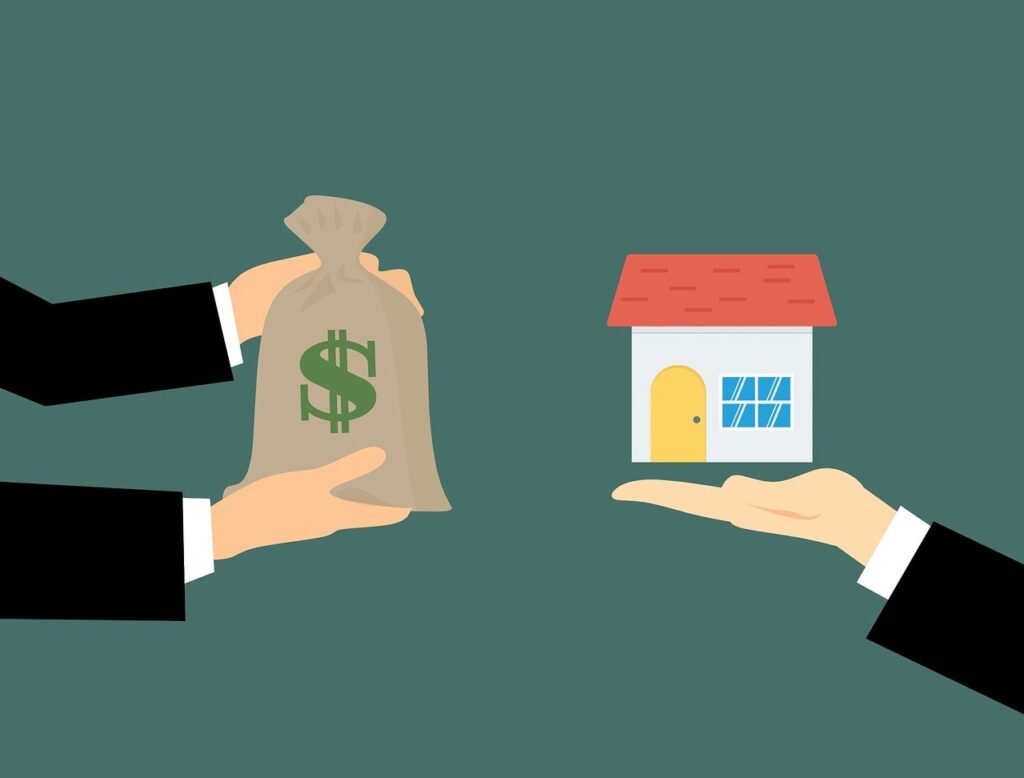A Comprehensive Guide to Buying Property in Australia
A Comprehensive Guide to Buying Property in Australia
Buying and Selling property in Australia is not difficult but it is intricate in its moving parts. Follow along with our comprehensive guide to buying property in Australia!
These are the tips and steps to help you navigate towards a successful purchase.
Please read carefully as there are many helpful tips that you may already know but need reminding, and there are many others that you may just not know.

1. Preparing Financially for the Purchase
The journey in our guide to buying a property in Australia begins with meticulous financial planning. Here’s what you need to do:
1.1. Establish a Budget
Formulating a budget is an essential first step in the process. By identifying your income, expenditures, and savings, you can determine your financial capacity to afford a property.
A comprehensive guide to Budgeting and links to great online budget planners can be found here.
1.2. Save for a House Deposit
The next step involves setting a savings goal for your house deposit. Generally, a savings goal of 20% of the property’s purchase price is considered ideal. This ensures that you have a significant portion of the property’s cost upfront, reducing your loan amount and potentially saving you thousands in interest over the life of your loan. This Budgeting Guide with Calculator will help you achieve your deposit goal.
1.3. Improve your Credit Score
Maintaining a healthy credit score is crucial as it impacts your borrowing capacity. A high score can open doors to better loan options and interest rates.
1.4. Obtain Home Loan Pre-Approval
Pre-approval from a lender provides an estimate of how much you can borrow, helping you set a realistic price range for your property search. Remember, pre-approval is not a loan guarantee, but a conditional approval based on your financial situation. Once you have your loan approval its important to note that they expire so you’ll need to get another pre-approval before making an offer, don’t forget rising interest rates reduce your borrowing capacity.
Remember: If you’re considering buying a property, getting your finances in order should be your first step. Buyer’s Agency, House Hunters, can recommend a great Mortgage broker if you don’t already have one. They can provide expert advice and support to ensure you’re financially prepared to buy a property.
2. Understanding the Property Market
Once your finances are in order, it’s time to understand the property market dynamics. This involves researching different property types, their prices, and the potential return on investment.
2.1. Residential vs. Commercial Property
Both residential and commercial properties offer different benefits. While residential properties offer stability and consistent capital growth, commercial properties can offer higher return rates and longer lease terms.
2.2. Market Stability
Australia’s property market is known for its stability, making it a safe bet for investors. Factors contributing to this stability include responsible lending legislation, a consistent undersupply of housing, and a majority of homeowners rather than speculators.
2.3. Location
Location plays a significant role in the value and potential return on investment of a property. Consider factors like proximity to amenities, employment opportunities, and future development plans in the area.
Pro Tip: Engage with real estate agents or buyer’s agents like House Hunters to get local advice that can help you select an affordable area with great returns.
3. Determining What Kind of Property to Buy
The choice of property type will depend on your budget, lifestyle preferences, and investment goals. Here are the different types of properties you can consider:
3.1. New Builds
Acquiring land and embarking on a house construction project in Australia presents several advantages and potential challenges:
Pros:
- Customization: You have the liberty to select the size and location of your land, design your house, and tailor the interiors to match your personal preferences.
- Energy Efficiency: New builds typically boast superior energy efficiency compared to existing properties, promising long-term cost savings.
- Financial Incentives: Some state governments offer financial incentives, especially for first-time homebuyers, who opt to construct a property rather than purchasing an existing one.
- Staged Payments: Construction costs are typically disbursed in stages, affording you extra time to accumulate the necessary funds.
- Warranty Protection: Your newly constructed house will come with a warranty, providing structural defect coverage for a specified number of years, with variations among states.
Cons:
- Construction Delays: Potential construction delays can result in your house costing more than initially budgeted, and securing additional funding from your lender may not be feasible.
- Council Approval: The process of gaining approval for your building design from the local council can be time-consuming and may lead to project delays.
- Move-In Delay: Unlike purchasing an existing property, you’ll need to wait until your house is constructed before moving in, requiring patience.
Builder Bankruptcy: There’s a risk of an unfinished property if your chosen builder experiences bankruptcy during the construction process, potentially leaving you in a precarious situation.
3.2. Off-the-Plan Properties
Buying off-the-plan involves purchasing a property before it is built. This allows you to lock in today’s prices, potentially benefiting from any increase in property value by the time the property is completed.
Purchasing an off-the-plan apartment, townhouse, or villa in Australia offers a range of advantages and potential drawbacks:
Pros:
- Deferred Deposit: When buying off-the-plan, you only need to pay the deposit upfront. This allows you more time to save before the settlement date.
- Price Lock-In: You can secure the property at today’s prices, and it may appreciate in value by the time you take possession.
- Reduced Stamp Duty: In certain circumstances, and if you meet specific criteria, some states may require you to pay stamp duty only on the land’s value, potentially reducing your expenses.
- Customisation Options: You may have the opportunity to select fixtures and fittings that align with your personal preferences, customizing the property to suit your tastes.
- Simplified Approvals: Developers typically handle the council approval process, sparing you from this administrative burden.
Cons:
- Market Price Fluctuations: If property prices decline during construction, you might end up paying more than the property’s current market value. Additionally, your lender may be hesitant to provide the previously agreed-upon loan amount.
- Developer Bankruptcy: In the unfortunate event of the developer going bankrupt, there’s a risk of losing your deposit and being left with an incomplete property. This is a biggie, choose a well-known respected developer.
- Extended Construction: Construction may take longer than initially projected, potentially delaying your move-in date.
Mismatched Expectations: The final property may not align with your preferences, potentially resulting in dissatisfaction with the finished product.
3.3. Established Properties
Purchasing an EXISTING HOME has its advantages and drawbacks:
Advantages:
- Quick Move-In: Typically, you can move into the property within one to three months after agreeing to buy it.
- Visible Assessment: You have the advantage of inspecting the property before purchase, avoiding unexpected surprises.
- Established Infrastructure: Buying a house in an established area usually means that essential amenities, transportation links, and shops are conveniently nearby.
Disadvantages:
- Upfront Costs: Consider upfront expenses like obtaining building and pest reports, which may reveal property issues that need addressing if you decide to proceed with the purchase.
- Excluded Fixtures: Ensure to thoroughly review the sales contract, as certain fittings and fixtures may not be part of the sale.
- Interior Modifications: Depending on your preferences, you may need to make interior changes to modernize or personalize the property, incurring additional costs and effort.
When purchasing an ESTABLISHED TOWNHOUSE, APARTMENT OR VILLA, it’s important to weigh the following advantages and disadvantages:
Pros:
- Reduced Maintenance: These properties are generally smaller in size compared to houses and have smaller land parcels, making them more manageable in terms of maintenance.
- Close Neighbours: They are constructed with adjoining walls, offering the benefit of security and a sense of community with neighbours in close proximity.
Cons:
- Strata Fees: Apartment, townhouse, or villa complexes often come with ongoing strata fees, which you must include in your budget. These fees cover shared expenses for the maintenance and management of common areas. It is so important to have your Buyer’s Agent scrutinise the strata report and understand and convey the consequences of impending capital works to you. Don’t get bitten here without a full understanding of what you are buying.
- Noise Transfer: Because you’ll share at least one common wall with a neighbour, there’s a potential for noise transfer, which can affect your living experience.
- Strata Bylaws: Be aware that there may be rules outlined in the strata bylaws that could restrict what you’re allowed to do with your property, limiting your freedom for customisation and modifications.
3.4. House and Land Packages
House and land packages are a popular choice among first-time homebuyers. They offer the convenience of buying the land and building a house in a single deal, usually at a lower cost than buying land and building separately.
Buying a house and land package in Australia presents specific advantages and disadvantages:
Pros:
- Stamp Duty: Generally, when you purchase a house and land package, you only pay stamp duty on the land, not the house, saving you money.
- Council Assistance: The developer typically assists with council approval, simplifying the process of obtaining necessary permits.
- Cost Efficiency: This option is usually more cost-effective than acquiring land and constructing a house separately.
- Price Lock-In: You have the opportunity to secure the property at today’s prices, and its value may appreciate by the time you move in.
Cons:
- Distance from Cities: In many parts of metropolitan Australia, vacant land is often located a considerable distance from major cities, potentially impacting your commute.
- Design Limitations: Developers may impose restrictions on the number of housing designs you can choose from, limiting your customization options.
- Lack of Infrastructure: Essential amenities like shops, schools, childcare facilities, healthcare services, and transportation links may not yet be established in the area.
- Smaller Block Sizes: New housing estates often offer smaller land parcels compared to established homes.
- Additional Costs: Certain expenses such as landscaping, fencing, and driveways may not be included in the purchase price, necessitating a thorough review of the contract.
- Construction Activity: You might experience living in an area surrounded by ongoing construction as other houses are being built.
Key Tip: Consider your lifestyle and financial goals when choosing the type of property to buy. Buyer’s agencies like House Hunters can provide valuable insights to help you make an informed decision.
4. Engaging with Professionals
Buying a property involves a multitude of legal and financial procedures. To ensure a smooth process, it’s advisable to engage with professionals who can guide you through these procedures. If you do not have any of these professionals to guide you, please let us know at House Hunters and we can refer you to the right one based on your specific needs.
4.1. Mortgage Brokers
Mortgage brokers can assist you in finding the best loan options according to your financial situation. They deal with lenders on your behalf, saving you time and effort. Not all mortgage brokers are the same.
4.2. Conveyancers
Conveyancers take care of the legal aspects of the property purchase. They review contracts, handle property transfers, and manage other legalities involved in the purchase. Some properties require specialist conveyancers or lawyers. Basic house transactions can be relatively inexpensive if you use a conveyancer, more complicated commercial or SMSF purchases may require a more experienced solicitor or specialist conveyancer.
4.3. Buyer’s Agents
Buyer’s agents, such as HOUSE HUNTERS, can help you find the right property, negotiate the best deal, and manage the buying process on your behalf. Today in a market where properties are selling pre and off-market you need to be ahead of the game and have a buyer’s agent on your side. Furthermore, they are regarded as essential for overseas investors or those not familiar with the local property market.
4.4. Accountants and Financial Planners
Accountants and Financial Planners can help you manage your finances, save on taxes, and structure your financials for property investment. Cannot stress enough to see a property accountant and/or financial planner to make sure that your structure is right for your time in life. A young single person may require a different structure to a retired person, or someone who is purchasing with friends or in a Super Fund. Seek help to minimise the tax you need to pay and for Estate planning purposes.
5. Navigating the Buying Process
Once you’re financially prepared, and have a team of professionals by your side, you’re ready to navigate the buying process.
You can do this yourself, or you can engage a BUYER’S AGENT.
A buyer’s agent, such as HOUSE HUNTERS, can connect you with a team of trusted professionals. If you already have your team, that’s great too! This is where the enjoyable (and occasionally stressful) part of the process begins. It’s also why having a Buyer’s Agent is a wise choice – they can free up your weekends, ensure you’re making a smart investment, and reduce the risks associated with your purchase.
A reliable buyer’s agent is well-versed in your chosen suburbs, neighbourhoods, amenities, streets, real estate insights, local agents, and up-to-date market data, including recent sales. Their extensive experience and knowledge across various markets, particularly in competitive markets, are invaluable assets.
Here’s how to do it:
5.1. Researching Properties
Start your property search by browsing online listings, attending open houses, and speaking to real estate agents. Consider factors like location, property type, price, and potential growth when researching. Ask us for A SUBURB GUIDE or if you engage us, we can provide you with COMPARABLE SALES DATA for a house, building or suburb.
5.2. Checking the Contract of Sale
Once you find a property you’re interested in, request a contract of sale from the real estate agent. Have your solicitor or conveyancer review the contract before you sign it.
5.3. Arranging Property Inspections
Before finalising your purchase, arrange for building and pest inspections to ensure the property is in good condition. For strata properties, get a strata report to identify any potential issues with impending capital works planned for the building..
5.4. Finalising the Purchase
After inspections, if you’re satisfied with the property, proceed to finalise the purchase. This involves signing the contract of sale, paying the deposit, and waiting for the settlement date.
6. Understanding Ownership Structures
If you’re buying a property with someone else, it’s important to determine the ownership structure. The two most common structures are ‘joint tenants’ and ‘tenants in common’.
6.1. Joint Tenants
In this structure, each buyer owns an equal share of the property. If one owner dies, their share automatically passes to the surviving owner.
6.2. Tenants in Common
In this structure, buyers can own unequal shares of the property. If one owner dies, their share becomes part of their estate and is dealt with according to their will.
7. Paying Transfer Duty
Stamp duty has been renamed to Transfer Duty and is a state government tax payable on property transactions. Depending on your circumstances, you may be eligible for certain concessions and exemptions, which can help reduce the amount you have to pay.
In New South Wales, calculate approximately 5% for stamp duty which cannot be deferred and is payable at settlement. For more accurate costing check out this calculator or go to the Revenue NSW transfer duty website.
8. Organising Insurance
Before moving into your new home, consider taking out building insurance to protect your property. For investment properties, landlord insurance can provide additional coverage.
9. Making a Final Check
On the day of settlement, conduct a final inspection of the property to ensure it’s in the expected condition before moving in.
10. Day of Settlement
On the settlement day, you’ll need to pay the remainder of the purchase price, and in return, you’ll receive the title of ownership and the keys to the property.
11. Exploring Government Assistance Schemes
If you’re a first-time homebuyer, you may be eligible for various government schemes designed to assist you in owning a property sooner. Some of these schemes include the First Home Owner Grant, First Home Loan Deposit Scheme, and stamp duty concessions and exemptions.
12. Engaging with House Hunters
House Hunters is a Buyer’s Agency that can guide you through the intricate process of buying property in Australia. Whether you’re a first-time buyer or an experienced investor, Valeria and her team of professionals can provide expert advice and assistance, ensuring a stress-free and successful property-buying journey. Let us be your guide to buying property!
Buying property in Australia involves a series of steps, each requiring careful consideration and planning. With the right preparation, professional guidance, and a clear understanding of the process, you can navigate the property market with confidence. Happy house hunting!








